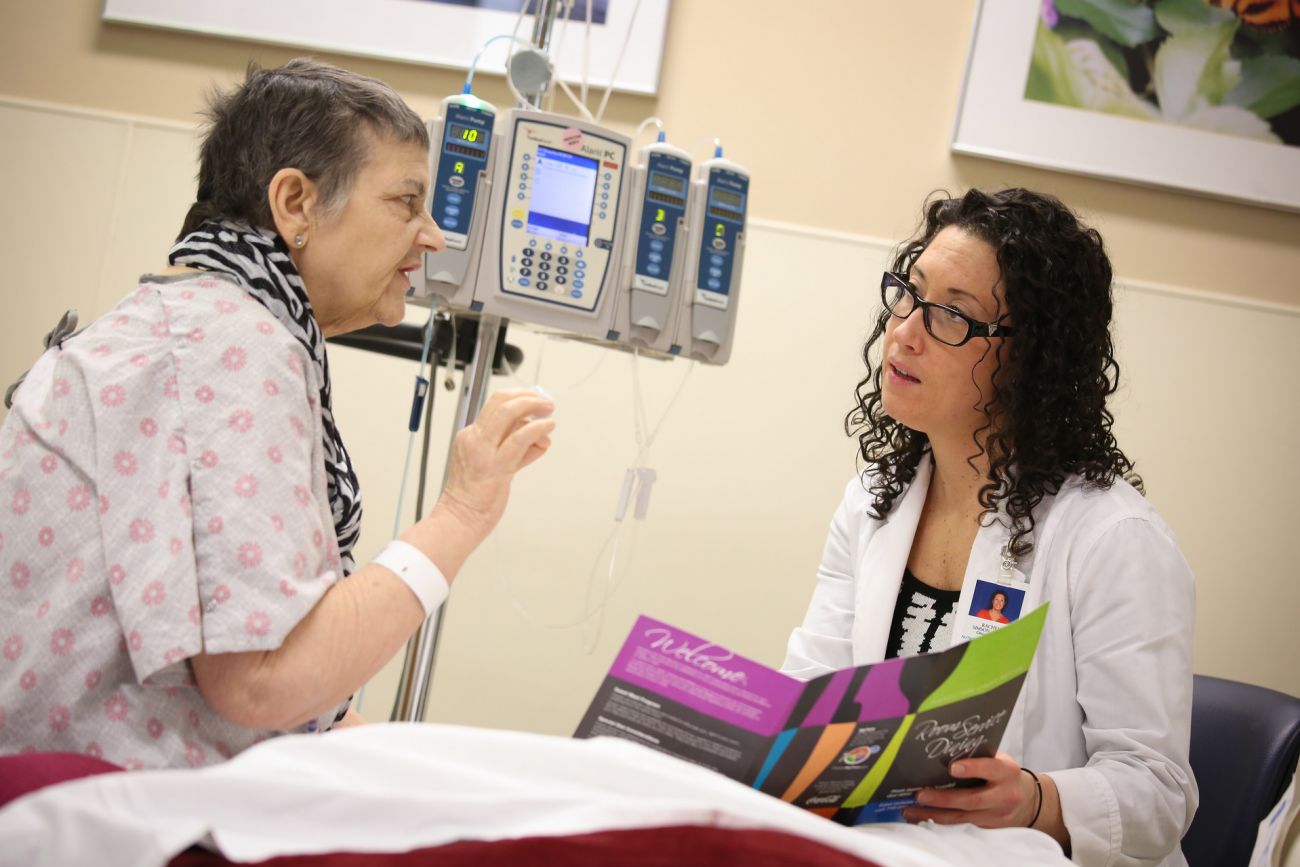If you’re in treatment, Roswell Park’s dietitians can help you make the most of every bite
Most people know that nausea can be an unwelcome side effect of cancer therapy, causing loss of appetite and poor nutrition. But treatments can also cause constipation, diarrhea, altered sense of taste, early satiety (feeling full very quickly), or even increased appetite and weight gain.
“Everyone gets different symptoms,” explains Roswell Park Clinical Dietitian Rachel Simson, MS, RD, CDN. “We have to assess what the patient needs and look at where they are in their treatment. Some people start chemotherapy and feel fine, and all of a sudden, a few weeks later, they feel the effects.”
Simson and her colleagues help by recommending foods that are “best tolerated with the patient’s symptoms — possibly colder foods, room-temperature foods, or bland foods that don’t worsen the nausea. We also make sure they are taking any prescribed anti-emetics [medications to control nausea].” Dietitians can also point out foods to help prevent or relieve constipation or nausea.
“Metallic taste is common in patients who receive radiation,” Simson adds, “and acidic foods make it worse. For those patients, we also recommend using plastic [utensils].”
If your appetite isn’t up to par, it’s important to choose foods that deliver more calories or nutrients per serving, SImson says. You can also try eating smaller but more frequent meals throughout the day, or adding nutrition-supplement drinks to your diet.
Because a patient’s appetite can change over time, an Roswell Park dietitian assesses every inpatient at the time of admission to the hospital and then follows up on a regular basis to make sure the patient continues to eat well. Outpatients can receive a nutritional assessment on the recommendation of a nurse or physician.
No matter where you are in your treatment plan, remember that eating well “is really important,” Simson says. “It’s like the gas in your car — it keeps you going!”
